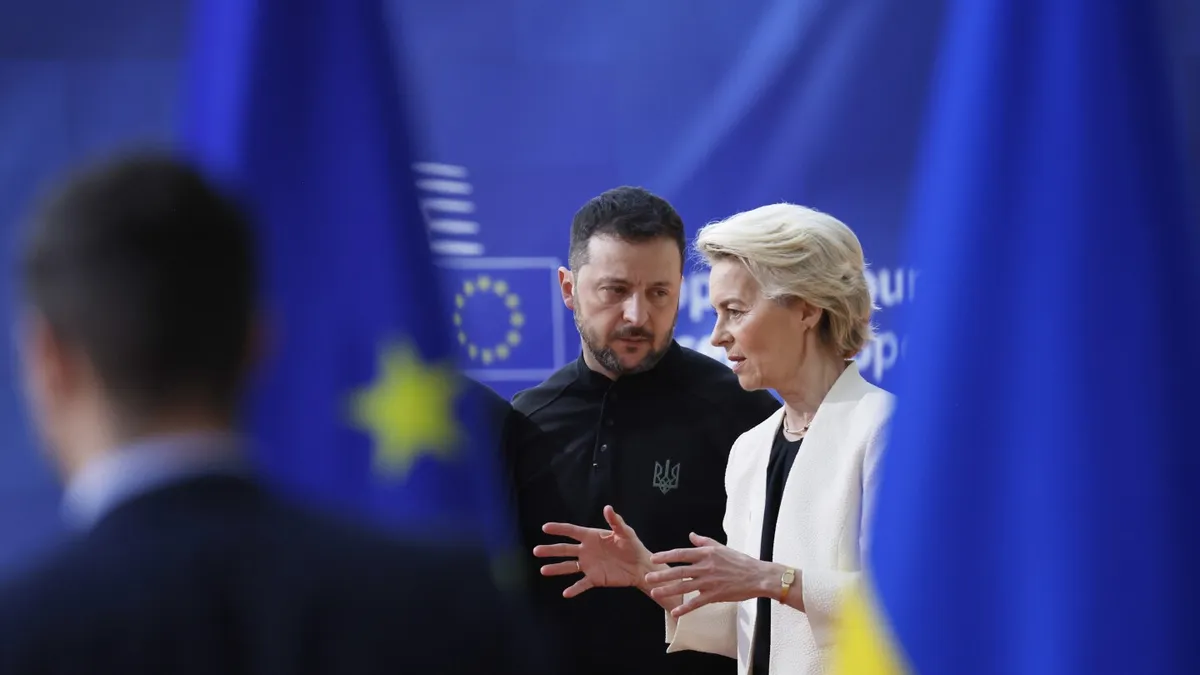
On March 6, 2025, Germany’s Chancellor Olaf Scholz arrived at the EU Summit in Brussels, where he spoke with media regarding pressing security concerns in Europe. One of the significant topics was the proposal of utilizing French nuclear weapons to safeguard other European countries. Scholz expressed his reservations about this idea, emphasizing the importance of the existing NATO nuclear deterrence system, which is primarily supported by U.S. nuclear capabilities and in which Germany plays a vital role. He stated, “I believe that this should not be abandoned — that is the common view of all centrist parties in Germany.”
In a separate briefing, Russian Foreign Minister Sergey Lavrov criticized French President Emmanuel Macron for suggesting that Russia poses a threat to Europe. Lavrov dismissed Macron’s claims, labeling them as “stupid” and “delirious nonsense.” He remarked, “For any more or less sane person it is completely clear that Russia does not need this,” further dismissing allegations of Russia planning attacks on European nations.
Additionally, Russia’s Foreign Ministry rejected a peace proposal from France and Britain, describing it as an attempt to provide a reprieve for the Ukrainian army. Spokesperson Maria Zakharova claimed that any break in fighting would allow Ukraine to fortify its military, prolonging the conflict.
Friedrich Merz, leader of the Christian Democratic Union (CDU) and a likely candidate for Germany's next chancellor, did not attend the EU summit but had previously engaged with top European leaders, including European Commission President Ursula von der Leyen and foreign policy chief Kaja Kallas. Merz emphasized the necessity of increasing Europe’s defense capabilities, stating, “we must be able to defend ourselves so that we don’t have to defend ourselves.” He asserted that “there can only be peace in Europe if we are strong.”
The British government is also making strides towards establishing a multinational military force to support peace efforts in Ukraine, involving approximately 20 nations in discussions led by the U.K. Prime Minister Keir Starmer. Although only the U.K. and France have committed troops thus far, the initiative dubbed a “coalition of the willing” aims to solidify peace in Ukraine post-ceasefire.
Lavrov warned that Russia would not accept NATO troops as peacekeepers in Ukraine, criticizing Macron and Starmer for their proposals. He reiterated that such actions would be viewed as direct involvement of NATO in the conflict, which cannot be allowed.
Chancellor Scholz articulated the need for substantial investments in defense across Europe, particularly as Germany prepares to enhance its military capabilities. He welcomed the EU's initiative to ease regulations for member states to borrow more for defense spending. Scholz stated, “We must ensure in the long term that states can spend as much on defense as they and their allies see fit,” indicating a collective approach to strengthening European security.
U.S. Defense Secretary Pete Hegseth recently stirred controversy by suggesting that the United States might not prioritize European security in the coming years. During a meeting with Ukraine’s Western allies, Hegseth remarked that NATO would not be involved in any future peacekeeping operations in Ukraine, emphasizing that it would be the responsibility of European nations to finance and execute such missions.
Meanwhile, in Ukraine, a Russian missile strike tragically resulted in the death of four individuals in Kryvyi Rih, coinciding with heightened tensions and ongoing military actions. The Ukrainian air force reported that Russia launched numerous missiles and drones overnight, further escalating the conflict.
As discussions unfold regarding the use of French nuclear deterrents and collective military spending, European leaders appear resolute in adapting to the evolving security landscape. Macron's proposal for strategic debates on nuclear deterrence has received mixed reactions, with Baltic nations expressing support for enhanced defense measures against Russian threats.
As the EU navigates these complex challenges, the need for a united and fortified response to external threats remains critical. The upcoming decisions by European leaders will significantly shape the continent's military posture and its ability to respond to future conflicts.